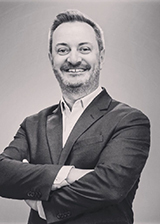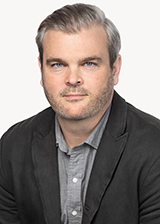3 executives discuss how to spot — and act upon — inflection points
In business, seeing technological or societal shifts on the horizon can be crucial to remaining relevant. Societal Platform’s chief curator Sanjay Purohit, Human Future CEO Dr. Jonathan Reichental, and techtonic.io CEO Ryan McManus discuss how to spot and capitalize on inflection points.
Sanjay Purohit on learning from your front-line people
Based on an interview with Sanjay Purohit, chief curator of Societal Platform and former chairman of the board of Infosys Consulting (September 2019).
“If you look at all natural systems, the first sign of change is sensed by the periphery,” Sanjay Purohit says. During his 16 years at Infosys, he made a point of traveling, speaking with customers, studying buying patterns, and looking at what competitors were doing.
“My function — strategy — was to prepare leaders’ minds to choose the right options.” Sure, Infosys would run simulations, but for him, equally important was to keep in touch with the sales force and delivery people, people close to the ground, because “that is where the signals lie.” A combination of sources would allow the company to make highly focused predictions because “the devil is in the details,” he says.
Since 2016, Purohit has been involved with an ambitious initiative to improve the Indian educational system. In this case, Purohit observed multiple broad signals that indicated that the time was ripe for a modular digital platform to address India’s education problems, in an agile and scalable manner — crucial for a nation of more than 1.5 million schools: It was becoming easier to build the platforms; digital access was improving; even non-tech-savvy people were becoming familiar with services like YouTube or WhatsApp. Philanthropic capital — necessary for a venture such as this — was on the rise; the UN’s Sustainable Development Goals (including quality education) were set in 2015. Many forces coalesced for the creation of a Societal Platform for Education System Leadership in 2017.
The heart of capitalizing on any inflection point, though, is “the ability to learn,” Purohit notes. Whether in the corporate world or sustainable development, we must develop the ability of “individuals to learn, the organization to learn, and leadership to learn.”
 Dr. Jonathan Reichental on the next big thing
Dr. Jonathan Reichental on the next big thing
Based on an interview with Jonathan Reichental, founder and CEO of Human Future, former CIO of the City of Palo Alto, and former director, IT innovations, PricewaterhouseCoopers (September 2019).
As director of technology innovations at PwC, Jonathan Reichental’s task was to predict how technology might impact not only the company’s 150,000 employees, but also its clients, like Disney, Lockheed Martin, or Pepsi.
During his 15 years at the company, he recognized the coming importance of several technologies, such as what was then called “social computing.” Facebook had just been founded; Twitter would come out two years later. “I was confident it would be a big deal,” he says now. “Social computing would become a new communications ecosystem.” But all he got from his firm was a collective shrug: “They did not get it.” This is the potential danger of being too far ahead of the curve. He’s philosophical about the reception now. The firm’s fundamental business was not affected by social networks, he admits. However, it certainly missed an opportunity to offer its clients a service to help deploy social networks, as Reichental proposed at the time.
Today, as a speaker, investor, educator, and consultant at the head of his own company, Human Future, he continues to advise clients on technology. He looks for signs that point to a new technology’s future importance: Is the venture-capital community investing in it? Are large companies acquiring the technology? Is there a lot of R&D in the field? Are journalists writing about it? Is there a clear business value? Is it understandable? Is it broadly applicable?
What’s on his radar right now is quantum computing. Reichental is concerned about the security risk it presents, because decoding encrypted data would be child’s play for a quantum computer. “Is this something that managers should begin to look at? The answer is yes,” he says. We are, however, still in a preliminary, educational phase, he notes.

Ryan McManus on the hard part
Based on an interview with Ryan McManus, CEO and co-founder (with Seeing Around Corners author Rita McGrath) of techtonic.io (September 2019).
A few years ago, when Ryan McManus was working at the consulting behemoth Accenture, he began to see a pattern. “We started to notice that when we were having strategy conversations with business leaders, they were asking about technology. When we were having technology conversations with technology leaders, they were asking about business strategy and business models,” he says. “I thought that there was a new opportunity to build a business at the intersection of those concepts.”
Excerpt from Business Digest N°300, October 2019
© Copyright Business Digest - All rights reserved


